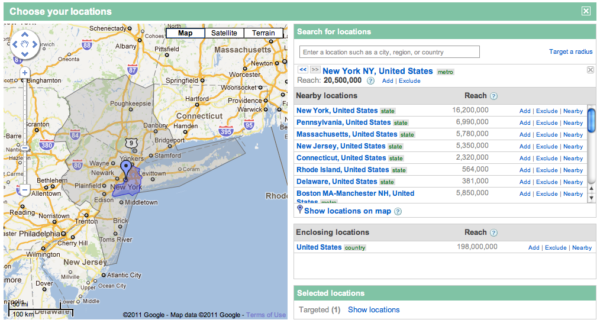Google Revamps AdWords Location Targeting Tool
Google is unveiling some changes to its location-targeting tool in AdWords which allow advertisers to search and discover new targets, view targeted areas on a map, and get additional information about the audience likely to see the targeted ads. The first change involves a search interface that gives instant results on matching locations, locations that […]
Google is unveiling some changes to its location-targeting tool in AdWords which allow advertisers to search and discover new targets, view targeted areas on a map, and get additional information about the audience likely to see the targeted ads.
The first change involves a search interface that gives instant results on matching locations, locations that enclose the search term’s location, and related locations that might be nearby, have a similar name, or enclose a location that has a similar name. On the list of results, advertisers can choose the ones that they want to target or exclude.
Once the targets have been chosen, Google is using its Maps capabilities to display a map of the geographic area being targeted. The company is also now providing reach numbers to estimate how many people use Google properties within the selected target. In some geographic areas, Google may not be able to target by IP but will just use intent data — when people use the name of the place in their search — to do the targeting. In those cases, the interface will say “Limited Reach.”
Location targeting limits will also be upped from 300 to 10,000 (targeted or excluded) — plus 500 additional proximity targets.
Google back in June announced it would be discontinuing multi-line shapes in geographic targeting. Users can still edit and delete existing shapes through 2011, but can’t create new ones.
Related stories
